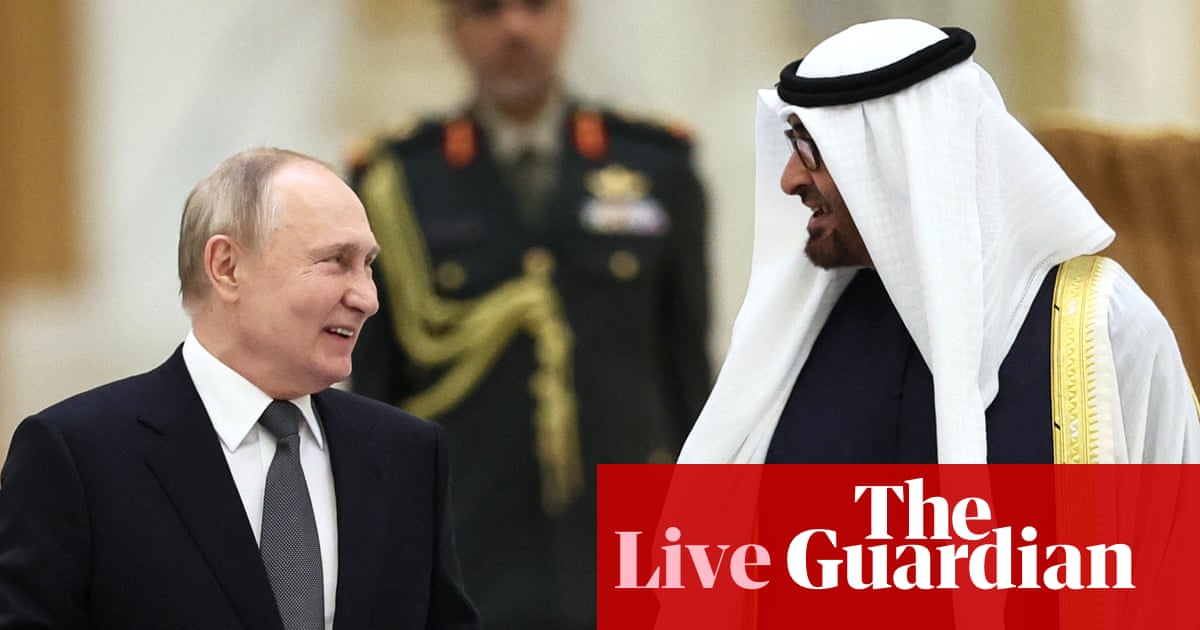
ABU DHABI — President of the United Arab Emirates Sheikh Khalifa Bin Zayed Al Nahyan approved on Sunday the new structure of the government.
Earlier in the day, Sheikh Mohammed bin Rashid Al Maktoum, vice president, prime minister and ruler of Dubai, after consultations with Sheikh Mohamed Bin Zayed Al Nahyan, Crown Prince of Abu Dhabi and deputy supreme commander of the UAE armed forces, announced the new ministerial structure through several tweets published on his official twitter account. Sheikh Mohammad also praised the support given by the country’s president to the new structure.
The new structure includes the closure of 50 percent of government services centres and their transformation into digital platforms within two years, and the mergers of around 50 percent of federal authorities with other authorities or ministries, in addition to the appointments of new ministers of state and CEOs of specialized sectors.
The new structure revealed on Sunday is in line with the announcement of Sheikh Mohammed at the end of the UAE government meeting held remotely in May, under the title, "The Preparations for the Post-COVID-19 Period," which witnessed the participation of 100 government officials, as well as international experts and researchers.
The new ministries include the Ministry of Industry and Advanced Technology, which will develop the country’s industrial sector. Three ministers will also be appointed under the Ministry of Economy, as well as a Minister of State for Digital Economy, Artificial Intelligence and Remote Work Applications while a UAE Government Media Office will be established.
The new structure of the government includes the merger of the Ministry of Energy and the Ministry of Infrastructure to become the Ministry of Energy and Infrastructure, the merger of the National Media Council and the Federal Youth Authority to the Ministry of Culture, the merger of the General Pension and Social Security Authority and the Ministry of Community Development, the merger of the National Qualifications Authority and the Ministry of Education, and the merger of the Insurance Authority and the Securities and Commodities Authority.
In a series of tweets, Sheikh Mohammed made an address to the citizens, saying: "Brothers and sisters, after consultations with my brother, His Highness Sheikh Mohamed Bin Zayed, who approved the new government structure and directed those concerned to harness all resources to preserve our achievements and accelerate the process of national development, and after the approval of my brother, His Highness Sheikh Khalifa, we announce, today, the new structure of the UAE Government. Our objective is to create a government with faster decision-making capacities that are capable of keeping pace with the latest developments, making the most of opportunities, and addressing this new era of our history, and a flexible government that aims to continue the nation’s achievements."
"Today, my brothers and sisters, we announce the mergers of ministries and authorities, the re-allocation of powers and responsibilities, and the restructuring of the UAE Government. We are closing 50 percent of government service centres and turning them into digital platforms within two years, merging 50 percent of federal authorities with other authorities or ministries, and appointing new ministers of state and CEOs of specialist sectors," he added.
Sheikh Mohammed then highlighted the establishment of the Ministry of Industry and Advanced Technology, which will aim to develop the national industrial sector and its merger with the Emirates Authority for Standardization and Metrology, explaining that the Minister of State for Advanced Sciences will work under its umbrella. He also announced the appointment of Sultan Al Jaber as Minister of Industry and Advanced Technology, and the establishment of the "Local Content Centre" to help local businesses follow the ministry.
The new UAE Government structure is as follows:
1. Sheikh Mohammed Bin Rashid Al Maktoum, vice president, prime minister and minister of defense
2. Lt. Gen. Sheikh Saif Bin Zayed Al Nahyan, deputy prime minister and minister of the interior
3. Sheikh Mansour Bin Zayed Al Nahyan, deputy prime minister and minister of presidential affairs
4. Sheikh Hamdan Bin Rashid Al Maktoum, minister of finance
5. Sheikh Abdullah Bin Zayed Al Nahyan, minister of foreign affairs and international cooperation
6. Sheikh Nahyan Bin Mubarak Al Nahyan, minister of tolerance and coexistence
7. Mohammad Bin Abdullah Al Gergawi, minister of cabinet affairs and the future
8. Ahmed Juma Al Zaabi, Minister of Federal Supreme Council Affairs
9. Abdul Rahman Bin Mohammad Bin Nasser Al Owais, minister of health and prevention and minister of state for federal national council affairs
10. Dr. Anwar Bin Mohammad Gargash, minister of state for foreign affairs
11. Obaid Humaid Al Tayer, minister of state for financial affairs
12. Reem Bint Ibrahim Al Hashemy, minister of state for international cooperation
13. Suhail Bin Mohammed Al Mazrouei, minister of energy and infrastructure
14. Dr. Abdullah Belhaif Al Nuaimi, minister of climate change and the environment
15. Dr. Sultan Bin Ahmed Al Jaber, minister of industry and advanced technology
16. Sultan Bin Saeed Al Badi, minister of justice
17. Hussain Bin Ibrahim Al Hammadi, minister of education
18. Mohammed Bin Ahmed Al Bowardi, and minister of state for defense affairs
19. Noura Bint Mohammed Al Kaabi, minister of culture and youth
20. Jameela Bint Salem Al Muheiri, minister of state for public education
21. Nasser Bin Thani Al Hamli, minister of human resources and Emiratization
22. Hessa Bint Essa Buhumaid, minister of community Development
23. Abdullah Bin Touq Al Marri, minister of economy
24. Dr. Maitha Bint Salem Al Shamsi, minister of state
25. Dr. Ahmad Belhoul Al Falasi, minister of state for entrepreneurship and SMEs
26. Dr. Thani Bin Ahmed Al Zeyoudi, minister of state for foreign trade
27. Ohood Bint Khalfan Al Roumi, minister of state for government development and the future
28. Shamma Bint Suhail Al Mazrouei, minister of state for youth affairs
29. Zaki Nusseibeh, minister of state
30. Mariam Bint Mohammed Almheiri, minister of state for food and water security
31. Sarah Bint Yousif Al Amiri, minister of state for advanced technology
32. Omar Bin Sultan Al Olama, minister of state for artificial intelligence, digital economy, and teleworking applications
33. Ahmed Ali Al Sayegh, minister of state CEOs of UAE Government. — WAM












